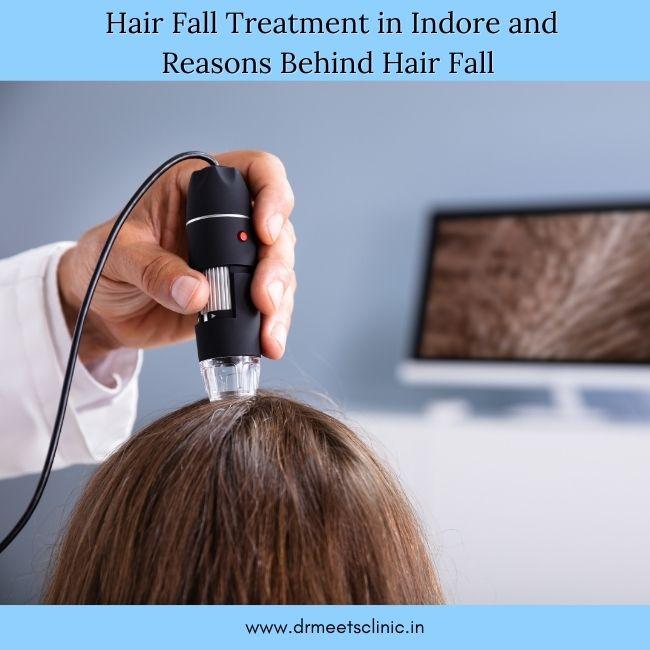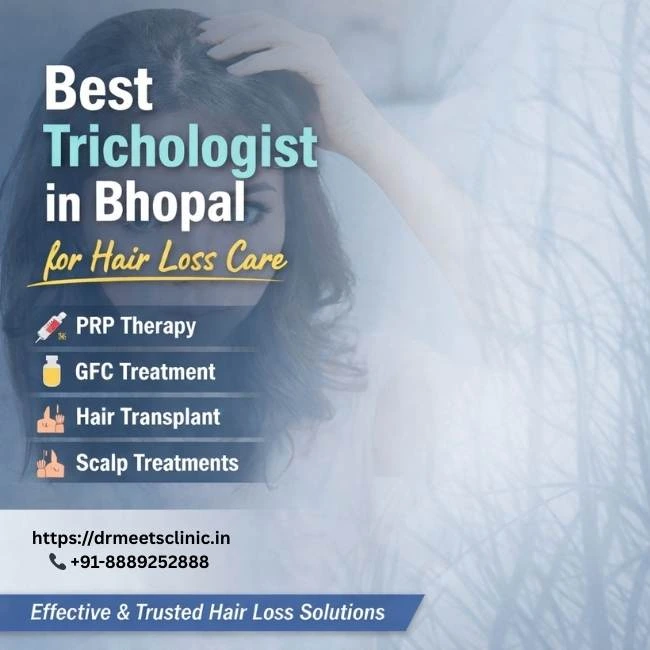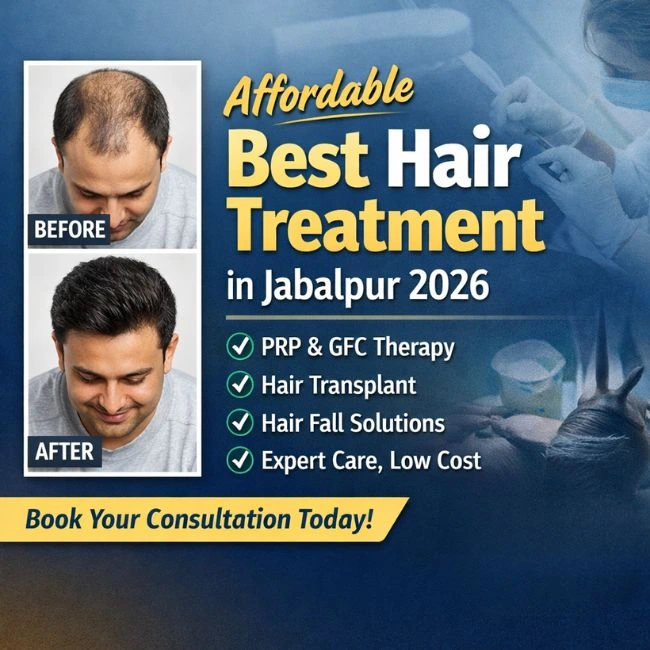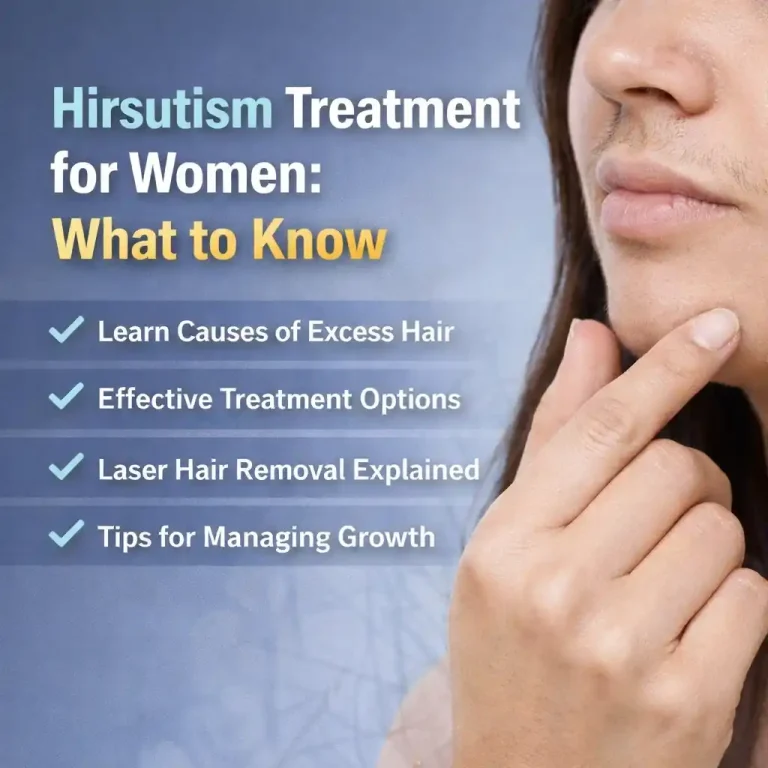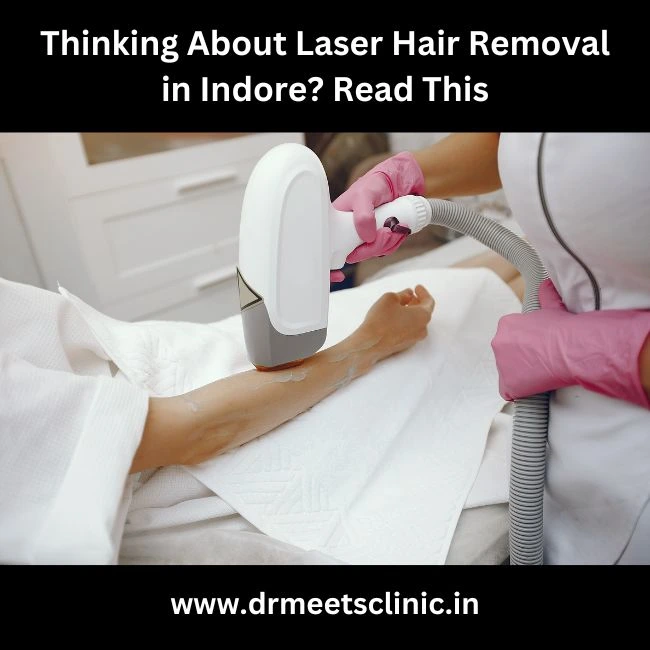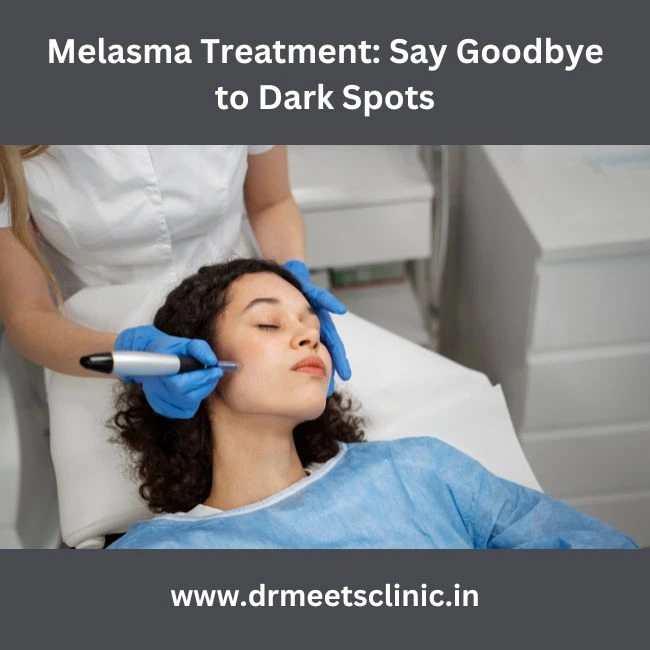Are you stressed about the constant hair fall? Is daily hair fall making you loose sleep? Are you worried about your looks and your confidence is going down due to constant hair fall?
Hair fall, loss, and thinning is a very common condition affecting thousands and thousands of people worldwide. In recent years, the incidence of hair loss has increased significantly due to various factors. It is crucial to address hair loss early to prevent it from escalating into severe hair loss, which can have psychological and social implications.
You can restore your confidence with the most appropriate form of hair fall treatment in Indore. But what is causing you to loose hair? Let’s explore various reasons why you may be struggling with hair fall and talk about hair fall treatments in Indore that may be best for you.
Importance Of Hair Fall Treatment In Indore
Hair fall is a growing concern affecting both men and women, often leading to distress and a loss of self-confidence. The importance of addressing hair fall promptly cannot be overstated. Early intervention through assistance of a hair clinic in Indore can prevent further hair loss and even promote regrowth, restoring the health and vitality of your hair.
Treatment options, from topical solutions and medications to advanced procedures like hair transplants, can effectively manage hair fall. Additionally, these treatments often address underlying issues such as hormonal imbalances, nutritional deficiencies, or stress, commonly linked to hair loss.
Seeking professional help by contacting a hair clinic in Indore not only aids in identifying the root cause but also ensures that you receive personalized care tailored to your specific needs. Ignoring hair fall can result in irreversible damage, making early hair fall treatment in Indore crucial for maintaining a full and healthy head of hair.
Considering a hair fall treatment in Indore? Wait! Let’s understand what causes hair fall and explore the various treatments that may be available for you.
What Causes Hair Fall? 
Hair fall can result from a multitude of factors, ranging from genetics and health conditions to environmental influences and lifestyle choices. Understanding the root cause of one’s hair loss can help in identifying the most beneficial hair fall treatment in Indore and preventive measures. Below are various reasons for hair fall:
Environmental Factors Of Indore
- Pollution: Air pollutants can damage hair follicles and scalp health.
- UV Radiation: Prolonged sun exposure can weaken hair shafts.
- Hard Water: High mineral content in water can often lead to dry, brittle hair
Stress and Psychological Factors
- Physical Stress: Surgery, severe illness, or sudden weight loss can cause hair loss.
- Emotional Stress: Elevated levels of stress and anxiety are known to often trigger hair loss and thinning.
Wrong Hair Care Practices
- Excessive Hair Styling: Frequent use of heat styling tools and tight hairstyles can cause hair damage and fall.
- Improper Hair Washing: Overwashing or using harsh shampoos can strip hair of natural oils, leading to dryness and breakage.
- Chemical Hair Treatment: Straightening creams, hair colors, and dyes can rob hair of its protective layers, making it more brittle, dry, and prone to breakage.
Genetic Factors
- Androgenetic Alopecia: This is a condition known as male or female pattern baldness. it is also one of the most common causes of hair loss, resulting from a genetic predisposition.
Hormonal Changes
- Pregnancy and Childbirth: Hormonal fluctuations during and after pregnancy can cause temporary hair loss.
- Menopause: Decreased estrogen levels during menopause tend to lead to thinning hair.
- Thyroid Disorders: Both hypothyroidism and hyperthyroidism are disorders that can disrupt hair growth cycles.
Medical Conditions
- Alopecia Areata: This is an autoimmune condition. Here one’s immune system attacks hair follicles, leading to patchy hair loss.
- Scalp Infections: Several fungal infections including ringworm are known to cause hair loss.
- Chronic Illnesses: Conditions like diabetes, lupus, and anemia can contribute to hair fall.
Medications and Treatments
- Chemotherapy: Cancer treatments like chemotherapy often result in significant hair loss.
- Blood Thinners: Medications like warfarin can lead to hair thinning.
- Antidepressants and Anti-anxiety Medications: Certain psychotropic drugs can cause hair fall.
- Hormonal Treatments: Medications for hormone replacement therapy, birth control pills, and steroids can impact hair health.
Hormonal Imbalances
- Polycystic Ovary Syndrome (PCOS): Can cause hair thinning due to hormonal changes.
- Adrenal Gland Disorders: Conditions affecting adrenal hormones can impact hair growth.
Age
- Aging: The natural aging process can also ultimately contribute to gradual thinning of hair.
Infections and Diseases
- Seborrheic Dermatitis: An inflammatory condition that affects the scalp and can cause hair loss.
- Psoriasis: Scalp psoriasis can damage hair follicles.
Immune System Deficiencies
- Autoimmune Diseases: Conditions like lupus and rheumatoid arthritis can affect hair health.
- Chemical Exposure: Certain heavy metals, including mercury, thallium, boron, cadmium, copper, and bismuth, are toxic to hair follicles. These can induce drastic hair fall.
- Toxic Chemicals: Exposure to toxins and heavy metals can damage hair follicles.
By understanding these causes, individuals can better address their hair fall issues through targeted hair fall treatment in Indore and lifestyle changes. Seeking professional advice from a hair doctor in Indore can also help in identifying specific causes and appropriate interventions.
Does Nutrition Play An Important Role In Hair Fall?
Diet and nutrition play a pivotal factor in maintaining healthy hair. Poor dietary habits and nutritional deficiencies can lead to hair fall treatment in Indore. Below are detailed points explaining how diet and nutrition negatively impact hair health and contribute to hair fall:
How Nutritional deficiencies impact hair health:
- Iron Deficiency: Insufficient iron levels can contribute to anemia. It reduces the oxygen supply to hair follicles and causes your hair to weaken and fall out.
- Vitamin D Deficiency: Did you know Vitamin D is extremely important for the health of hair follicles? A deficiency can impair hair growth cycles, leading to hair thinning and loss.
- Zinc Deficiency: Zinc is yet another essential nutrient for tissue growth and hair repair. A lack of zinc can weaken hair strands. This can make one’s hair more prone to breakage and fall.
- Protein Deficiency: Hair is primarily made of protein (keratin). Inadequate protein intake can cause hair to become brittle and eventually lead to hair loss.
- Inadequate Intake of Essential Fatty Acids: Omega-3 Fatty Acids are essential for scalp health and hair hydration. A deficiency can result in a dry, flaky scalp and hair loss. While omega-6 fatty acids are necessary in small amounts, an imbalance between too much omega-6 and not enough omega-3 can lead to inflammation and contribute to hair loss.
A poor diet lacking essential nutrients can significantly impact hair health. Vitamins and minerals, along with proteins, are vital for maintaining shiny and healthy hair. Deficiencies in nutrients can, however, lead to increased hair fall. Incorporating a balanced diet rich in all the abovementioned nutrients can help improve hair health. Plant-based food items such as leafy greens (spinach, kale), nuts, seeds, fish, and eggs provide essential vitamins and minerals. These are known to support hair growth and reduce hair fall.
What Types Of Diets Have a Negative Impact on Hair Health?
Numerous types of diets have a severely negative impact on your hair health. Below are most of the main diets that can result in hair loss:
Low-Calorie Diets
- Crash Dieting: Severe calorie restriction can shock the body. This leads to telogen effluvium, where a huge number of one’s hair follicles enter the resting phase and fall out prematurely.
- Malnutrition: Consistently consuming fewer calories than needed can deprive hair follicles of essential nutrients, causing hair to thin and fall out.
High Sugar and Processed Food Intake
- Insulin Resistance: Diets high in sugar can lead to insulin resistance. It has been linked to androgenic alopecia (pattern baldness) due to the effect on androgen hormones.
- Inflammation: Processed foods often contain unhealthy fats and preservatives that can cause inflammation in the scalp, negatively affecting hair growth.
Imbalanced Diets
- Excessive Vitamin A: While some vitamin A is necessary for healthy hair, too much can trigger hair loss. Excessive supplementation can disrupt the natural hair growth cycle.
- Lack of Antioxidants: Antioxidants protect hair follicles from oxidative stress. Diets lacking in fruits and vegetables can contribute to increased hair damage and loss.
How Can Diet and Nutrition Lead to Hair Fall?
Hormonal Imbalances:
Poor diet can disrupt hormonal balance, particularly in cases of insulin and thyroid hormones, both of which play significant roles in hair health.
Reduced Scalp Blood Circulation:
Inadequate intake of nutrients like iron and vitamin E can reduce blood circulation to the scalp, depriving hair follicles of the oxygen and nutrients needed for growth.
Weakened Immune System:
A diet that fails to include essential vitamins and minerals can weaken the immune system. It can make the scalp more susceptible to infections and conditions like seborrheic dermatitis, leading to hair fall.
Dehydration:
Insufficient water intake can lead to scalp dehydration and dry, brittle hair that is more prone to breakage.
What Is The Importance of Hair Fall Treatment In Indore?
Addressing hair loss issues is crucial to maintaining beauty and psychological well-being. Hair loss can affect self-esteem and confidence. It is best to consult a trusted hair clinic in Indore to prevent further hair loss and promote regrowth. A hair doctor in Indore can prepare a treatment that cab help individuals regain their confidence.
Moreover, hair fall treatment in Indore may be essential to prevent other problems from sprouting up. Hence, getting a hair fall treatment in Indore is always advised for better overall mental and physical well-being. But what kind of treatments are available for hair fall in Indore? Below is a list of hair fall treatments in Indore that may reap great results:
Types Of Medical Treatments Are Available for Hair Fall In Indore
Experienced and professional hair doctors in Indore offer numerous types of hair treatments. Below are just some hair treatments you can benefit from when struggling with hair loss:
Natural DHT Inhibitors
Natural DHT inhibitors, such as saw palmetto, help reduce dihydrotestosterone (DHT) levels, a hormone linked to hair loss. These inhibitors can slow down hair loss and promote hair regrowth. However, results may vary, and it is essential to consult a doctor before starting any treatment.
Hair Transplant
Hair transplant is a common practice that is done by transplanting hair follicles from a donor area to the balding area. It is a permanent solution for hair loss with a high success rate. However, it can be expensive and may require multiple sessions. Post-surgery care is crucial to ensure the success of the transplant.
Laser Therapy
Low-level laser therapy (LLLT) stimulates hair follicles, promoting hair growth. It is a non-invasive treatment that is known to have minimal side effects. Regular sessions are required for optimal results. The effectiveness can vary among individuals.
Hair Rejuve Therapy (HRT-DS)
Hair Rejuve Therapy combines various treatments to rejuvenate hair follicles and promote growth. It includes using growth factors, vitamins, and other essential nutrients. The therapy is tailored to individual needs and can show significant long-term results.
Medications and Supplements
Medications including minoxidil and finasteride are often prescribed by hair doctors in Indore. These are effective against hair loss. Minoxidil is a topical treatment that is known to stimulate hair growth. On the other hand, finasteride is an oral medication that reduces DHT levels.
Supplements containing biotin, zinc, and other vitamins can support hair health. These treatments should be used under medical supervision to avoid side effects.
Can Changes To Lifestyle Reduce Hair Fall?
Yes, incorporating severe changes to your lifestyle can play a significant role in managing your hair fall. Below are just some ways you can reduce hair fall and improve overall hair health:
Stress Management
- Practice Relaxation Techniques: Engage in yoga, meditation, and deep-breathing exercises to reduce stress levels.
- Regular Exercise: Incorporate activities like walking, running, or swimming to manage stress and improve blood circulation to the scalp.
- Adequate Sleep: Have 7-8 hours of quality sleep. It will allow the body to repair and regenerate, including hair follicles.
Diet and Nutrition
- Balanced Diet: Make it a point to eat a diet rich in proteins, vitamins, as well as minerals. Incorporate food ideas essential for hair health, including lean meats, fish, eggs, nuts, and seeds.
- Hydration: Drink plenty of water to keep the scalp hydrated and support overall hair health.
- Essential Nutrients: Include foods rich in iron (spinach, lentils), zinc (pumpkin seeds, chickpeas), and vitamins A, C, D, and E (carrots, citrus fruits, fatty fish, almonds) in your diet.
- Avoid Crash Diets: Steer clear of restrictive diets that can lead to nutritional deficiencies and hair loss.
Hair Care Practices
- Gentle Hair Washing: Use mild shampoos and conditioners suitable for your hair type. Avoid washing hair with hot water; use lukewarm or cool water instead.
- Reduce Heat Styling: Limit the use of blow dryers, hair straighteners, and curling irons to prevent hair damage.
- Avoid Tight Hairstyles: Avoid tight ponytails, buns, or braids, which can pull on the hair and cause breakage.
- Regular Trimming: Trim hair every 6-8 weeks to prevent split ends and promote healthy growth.
- Natural Hair Products: Choose natural and organic hair care products free of sulfates, parabens, and harsh chemicals. A hair doctor in Indore can recommend some of the best hair products.
Scalp Care
- Regular Scalp Massages: Gently massage the scalp with oils like coconut or castor oil to stimulate blood flow and nourish hair follicles.
- Exfoliate Scalp: Use a gentle scalp scrub or mild exfoliating shampoo to remove dead skin cells and promote a healthy scalp environment.
Avoid Harmful Habits
- Quit Smoking: Did you know smoking restricts blood flow to the scalp, leading to hair follicle damage.
- Limit Alcohol Consumption: Excessive or daily alcohol intake can also lead to dehydration and nutritional deficiencies, affecting hair health.
Environmental Protection
- Sun Protection: Wear hats or use hair products with UV protection. Such protection can shield hair from sun damage.
- Avoid Pollution: Minimize exposure to environmental pollutants. Use protective hairstyles or cover your hair when in polluted areas.
Regular Health Check-ups
- Monitor Hormonal Levels: Regularly check for hormonal imbalances, particularly thyroid and sex hormones, which can impact hair health. For assistance, visit a hair clinic in Indore.
- Address Medical Conditions: Manage chronic conditions like diabetes, lupus, and PCOS that can contribute to hair fall.
Healthy Lifestyle Choices
- Regular Exercise: Maintain a regular exercise routine to improve overall health and blood circulation, supporting hair growth.
- Avoid Crash Diets: Sudden weight loss can shock the body and cause temporary hair loss. Aim for gradual, sustainable weight management.
Consult a Hair Doctor in Indore
- Professional Guidance: Consulting a hair doctor in Indore can provide personalized advice and hair treatment plans in Indore tailored to your specific hair loss condition.
- Advanced Treatments: If lifestyle changes are insufficient, a hair clinic in Indore can recommend advanced treatments like PRP therapy, laser therapy, or hair transplants.
- Regular Monitoring: Regular check-ups with a hair doctor in Indore can help monitor progress and adjust treatments as needed for optimal results.
Implementing these lifestyle changes can significantly reduce hair fall and enhance hair health.
Get Hair Fall Treatment In Indore Today
Hair loss can affect individuals’ confidence and quality of life. Understanding the causes and available treatments is crucial for managing hair loss effectively.
Early intervention and adopting healthy lifestyle practices can significantly reduce hair loss. For those seeking professional help from a reputable hair fall clinic in Indore, Dr. Meet’s Clinic. It is a trusted hair fall clinic in Indore that is known to provide effective solutions tailored to individual needs.
Dr. Meet’s Clinic provides specialized services, including advanced hair transplant techniques, laser therapy, and customized hair rejuvenation programs. This hair clinic in Indore is equipped with modern technology and staffed by experienced hair doctors who provide effective hair fall treatments.
If you are experiencing hair loss and looking for effective hair treatment options in Indore, contact Dr. Meet’s Clinic. Schedule a consultation today to explore the best hair fall treatment in Indore tailored to your needs.
Call us at +91-9993871118 or +91-8889252888 to book your appointment. You can also write to us at [email protected]







